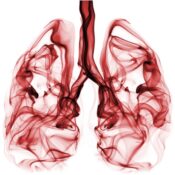Polite people around the world routinely fend off common colds better than rude ones, according to the HABIT (Hygiene: Attitudes, Behavior, Insight and Traits) study—the largest yet devoted to how psychology and social habits interact with health and hygiene.
“We have one and one-third million survey responses in our database waiting to be mined,” says Professor John Oxford, chairman of the Hygiene Council and lead investigator of the Lysol-funded study.
Current analysis shows that, among 12,000 responders from 12 countries, adults who felt embarrassed after sneezing or coughing on others were most likely to be free of colds. Why? Researchers found that those who respect the health of others are more apt to wash their hands frequently and generally protect themselves.
“Furthermore, we found that if considerate people do get infected, they are less likely to pass along germs than others who are generally less thoughtful,” explains Dr. Oxford. “There are three layers of protection to ward off spreading illnesses at home. First: vaccines. Second: antiviral or antibiotic drugs. Third, and perhaps most important, is breaking the chain of infection with good hand washing and use of disinfectants.”
In the study, stay-at-home moms took top honors for manners and hygiene. Students and office workers ranked lowest. But there’s room for improvement in all sectors, says Oxford.
“We’d like to see 80 percent of a population using good hygiene habits, and no country is at that mark,” adds the expert. “This is a big threat to public health. The good news is that people can change their habits. We learned to use seat belts, and we can adopt—and teach—better hygiene habits, too.”
Click here for tips on where, when, and how to disinfect.
Become a Saturday Evening Post member and enjoy unlimited access. Subscribe now



